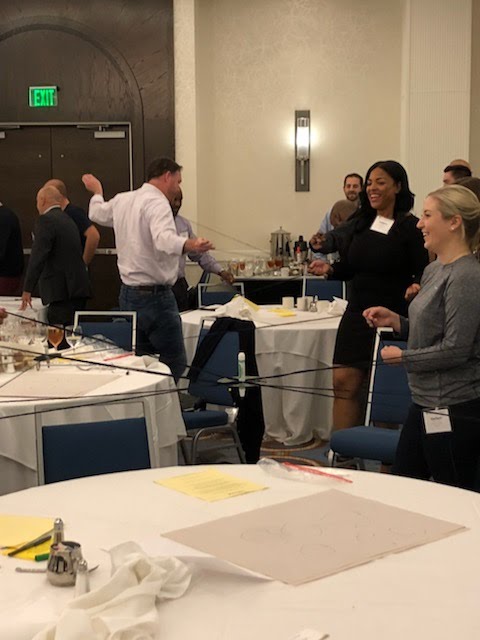Growth Mindset
The secret to a Growth Mindset approach comes with believing you can improve and then evaluating results and the process of learning. The goal of this program is to create awareness and encourage trial and error methods. Participants consciously choose a focus on Growth Mindset Learning
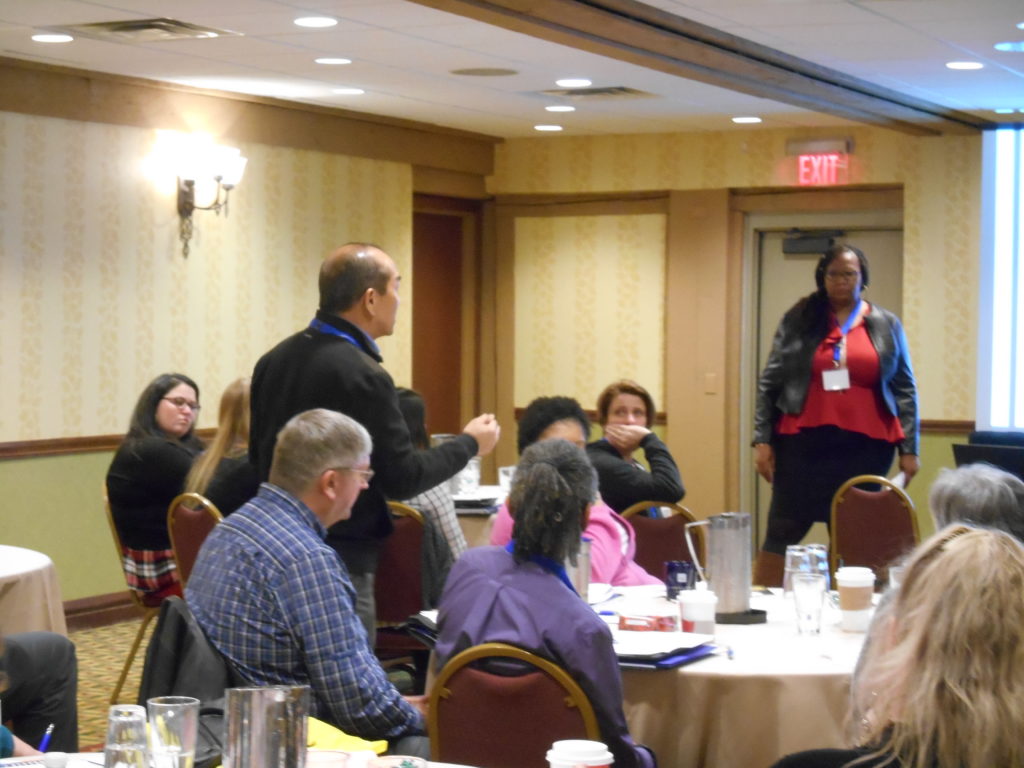
Our interactive sessions involve challenges; analyzing both level of success and method; then making adjustments to the next challenge attempt
- Finding success, with each attempt showing improvement? Great- keep up the same method
- If not showing successful improvement- what other methods, coaching, training, or skills are needed? What can be done differently? make adjustments and try again, repeat to achieve a positive result
- With a Static or Fixed Mindset- a person believes that skills or intelligence, are unchangeable traits. When trying hard doesn’t bring success- Fixed Mindset says- must be due to a lack of natural ability, not method
- Over the long-term, Fixed Mindset creates a real barrier to improvement. Focus is on showcasing a natural ability rather than on learning. As Growth Mindset is developed, it naturally improves ability to reach goals
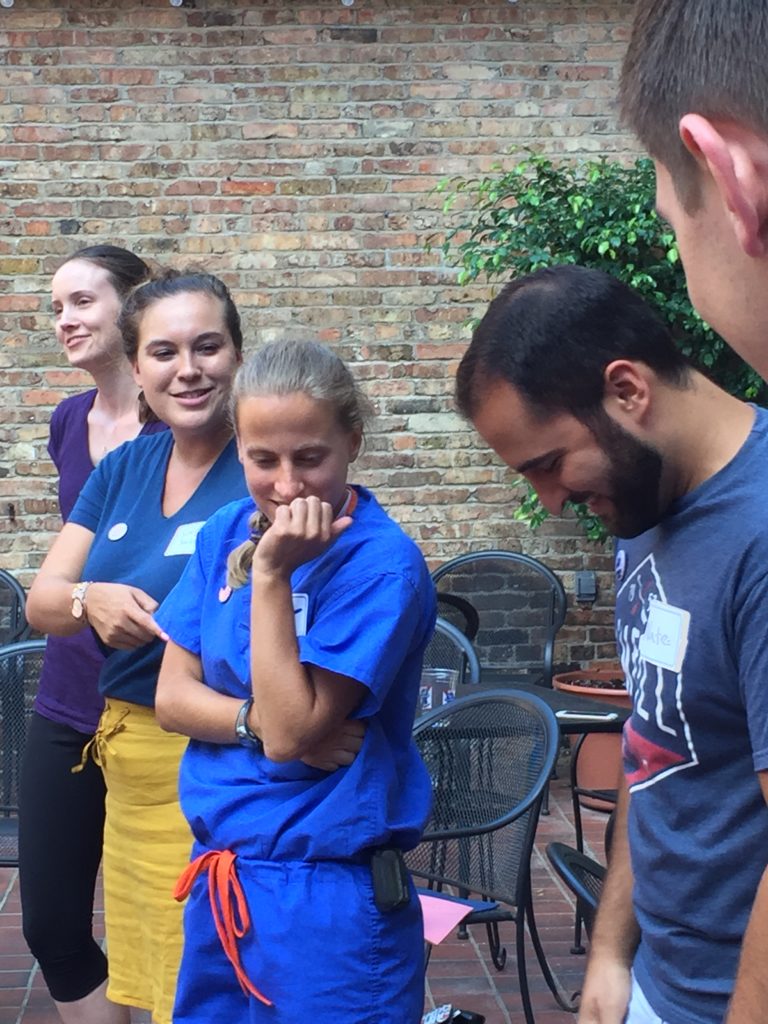
Realistically, most people have a combination of both Growth & Fixed Mindsets in different areas of their lives
For example- someone might believe they can learn a new computer program but believe it is nearly impossible to learn to make a good meal because they are not a born chef
Applying in Business: To improve as an individual and as a team- it is vital to understand the impact of your view of the ability to improve skills and abilities vs. a view that skills and abilities are fixed. We engage your team with an interactive workshop. Activities highlight the importance of working to learn or improve, then reviewing success and working at it again as needed. Programs are 2 – 4 hour blocks at your business or offsite.
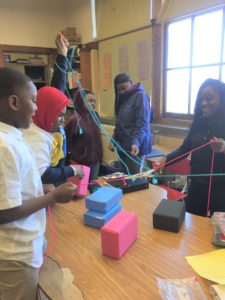 Applications for Educators & Youth: At home and school, youth often receive mixed messages about whether skills and abilities are “fixed and unchangeable” or whether the same skills can be “learned and improved.” For example, attributing a high score on a test to “being smart” may encourage youth to develop a more fixed mindset, believing studying and doing homework is not as important as being naturally smart.
Applications for Educators & Youth: At home and school, youth often receive mixed messages about whether skills and abilities are “fixed and unchangeable” or whether the same skills can be “learned and improved.” For example, attributing a high score on a test to “being smart” may encourage youth to develop a more fixed mindset, believing studying and doing homework is not as important as being naturally smart.
Our sessions focus on the value of trying challenge, then looking at whether there was progress or improvement toward a successful outcome. Praising the learning that comes from each attempt. What to adjust when we try again?
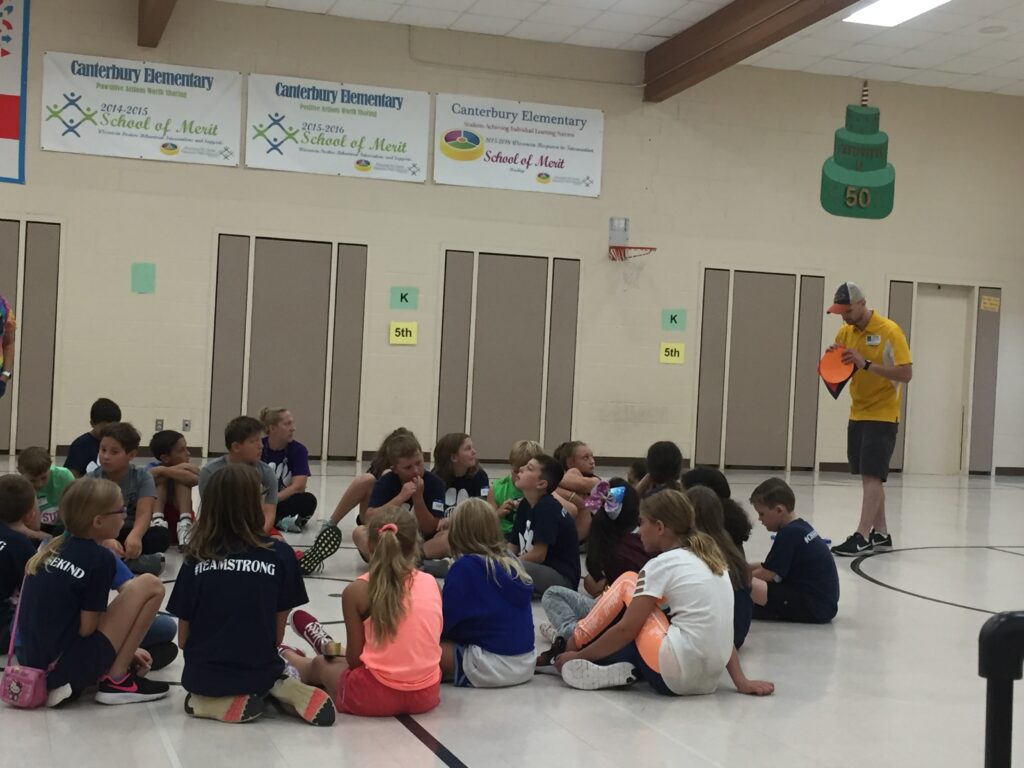
Typical sessions are held in classrooms or gym; during single class period; partial day; morning or afternoon. We practice learning by trying new methods to approach a challenge. Fun activities keep engagement while allowing the experience in an active way. Facilitators use concepts from Experiential Learning.
Unfamiliar with the concept of growth vs fixed mindset? see excerpt below from Carol Dweck’s 2006 book Mindset: The New Psychology of Success
“Individuals can be placed on a continuum according to their implicit views of where ability comes from. Some believe their success is based on innate ability; these are said to have a “fixed” theory of intelligence (fixed mindset). Others, who believe their success is based on hard work, learning, training, and doggedness are said to have a “growth” or an “incremental” theory of intelligence. Individuals may not necessarily be aware of their own mindset, but their mindset can still be discerned based on their behavior. It is especially evident in their reaction to failure.
Fixed-mindset individuals dread failure because it is a negative statement on their basic abilities, while growth mindset individuals don’t mind or fear failure as much because they realize their performance can be improved and learning comes from failure. These two mindsets play an important role in all aspects of a person’s life.
This is important because (1) individuals with a “growth” theory are more likely to continue working hard despite setbacks and (2) individuals’ theories of intelligence can be affected by subtle environmental cues.
For example, children given praise such as “good job, you’re very smart” are much more likely to develop a fixed mindset…
...whereas if given compliments like “good job, you worked very hard” they are likely to develop a growth mindset. In other words, it is possible to encourage students, for example, to persist despite failure by encouraging them to think about learning in a certain way.”
